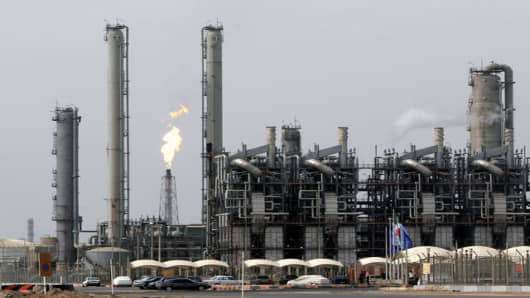Iran said China's Sinopec would invest around $2 billion under a deal signed on Sunday to develop the huge Yadavaran oil field, the kind of energy deal the United States has been trying to prevent.
Sinopec Group agreed in 2004 to take the lead in developing Yadavaran and to buy 10 million tons of liquefied natural gas (LNG) a year for 25 years. But talks to finalize the contract have been protracted, as in other Iranian energy deals.
"Implementation of the contract will start immediately," Iranian Oil Minister Gholamhossein Nozari told Reuters after the signing ceremony. "Now Sinopec will invest around $2 billion in Iran for the development of Yadavaran."
Zhou Baixiu, head of Sinopec's international exploration and production unit, said LNG was not part of Sunday's agreement, but that he hoped to discuss it with Iran in the future.
"We are very happy to sign this contract," he said.
Chinese officials have said tough commercial negotiations, not a threat of more United Nations sanctions on Iran because of its disputed nuclear plans, had delayed the agreement.
Washington, which is leading international efforts to isolate Tehran over its atomic activities, has sought to discourage international companies from investing in one of the world's largest oil exporters.
China has so far been reluctant to back a U.S. drive for further sanctions against Iran, which is Beijing's third-largest supplier of imported crude oil and also a growing trade partner in other areas.
Nozari said development of the field would take place in two phases, the first over four years to produce 85,000 barrels per day and the second over three years for an additional 100,000 bpd, totaling 185,000 bpd from 137 wells.
Rate of return was set at 14.98 percent, he said.
Strict Buyback Terms
Iran has the world's second-biggest crude reserves after Saudi Arabia and the second-largest gas reserves behind Russia. Although a major oil exporter, the OPEC member has been slow to expand gas exports and has no LNG plants.
Economists have said many foreign firms, particularly Western companies, are increasingly wary of investing in the Islamic Republic after the U.N. imposed two rounds of sanctions on the country over its nuclear row with the West.
The United States is pushing for a third set of U.N. sanctions, even though a U.S. intelligence report said Tehran had halted its nuclear weapons program in 2003. Iran insists it has never had plans to build nuclear bombs.
Nozari said Iran would continue to boost cooperation with China, saying Sunday's deal showed that talk of foreign countries being reluctant to invest in Iran was "baseless."
The Yadavaran field has in-place oil reserves of 18.3 billion barrels, of which 3.2 billion barrels are recoverable, according to Iranian estimates. Its gas reserves amount to 12.5 trillion cubic feet, of which 2.7 trillion are recoverable.
Foreign companies often complain about the terms of Iran's buyback deals, which they say are not particularly generous.
Under such agreements, companies hand over operations of fields to the National Iranian Oil Company after development and then receive payment from oil or gas production for a few years to cover their investment.


